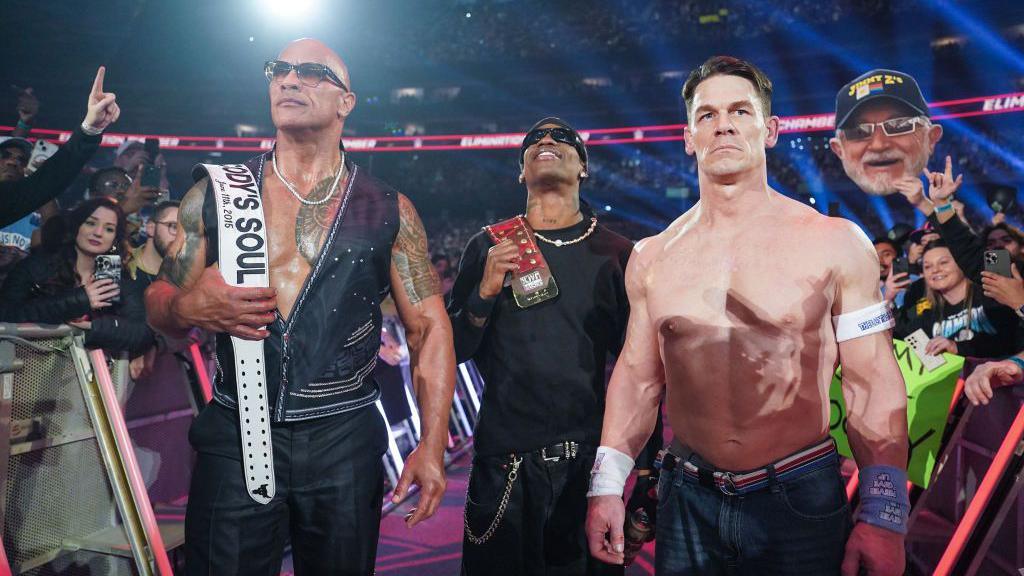Photo by Dusdin Condren
It’s late summer of 2014, and Robert Ellis is performing a solo show at Club Helsinki, a somewhat posh dinner theater in Hudson, New York. People are seated at candlelit tables. Ellis is onstage alone, dressed unassumingly in an oversized white T-shirt and old sneakers. He’s been living in Brooklyn’s Greenpoint neighborhood, and admits to the crowd he’d tied one on the night before. Ellis takes off his guitar, and sits at a keyboard. He’s been touring his latest album—the fabulous, genre busting The Lights From the Chemical Plant—since its February release, and wants to drop a new one on the crowd.
Videos by VICE
He begins plinking the keys, then playing full, meaty chords. He sings, “It was a long way to go, from Louisiana to Laredo…”
The song is “California,” and even at Helsinki where it’s just skin and bones, you can tell it’s a hit. An aching lament twinged with a bit of hope, the song sees a woman pack up an empty house after a messy split from a man she would’ve followed to the moon. What’s left for her in “this ghost town”? She begins to daydream.
“Maybe I’ll move to California,” she thinks, “with the unbroken part of my heart that I have left. Maybe I’ll learn to love again some day. I’m not going to hold my breath.”
On Ellis’s new, self-titled album (out June 3 on New West), “California”—which Noisey is premiering below—is fully flushed out. There’s a gorgeous string arrangement draped over the skeleton Ellis laid out at Helsinki, and steadily plucked notes drenched in reverb from his longtime guitarist Kelly “The Tele” Doyle. Ellis’s quavering vocals soar above it. It’s a show-stopper, which shouldn’t be surprising considering this songwriter has been critically-approved and hailed as one of the next Texas greats. Narrative songwriting is something he’s mastered over his last two albums: Chemical Plant and Photographs. On the former, in particular, Ellis was trying to bust out of the “Savior of Country Music” box he’d started to see himself placed in after Photographs caught on. “The media were using words like ‘troubadour,’” he says, face puckering.
“California” was inspired, in part, by Ellis’s own recent divorce, he tells me. “But it’s written from the woman’s perspective,” he says, lighting a cigarette in a riverside park a couple blocks away from Noisey HQ. “Where to go after the destruction?”
Ellis rarely writes songs straight from the pages of his own diary. (“I find it weird when people do.”) But does use events in his own life as an anchor at times, adding characters and embellishments along the way. “California” serves as an example of this.
“One of the great things about songwriting,” Ellis says, “is being able to step outside of a situation and analyze it. You can reflect on your own life in a God-like way. You control the action. Sometimes you can make the people in your songs do what you didn’t do. When I’m writing a song through characters, I’m connected to it, but also outside it. My life is not as interesting as a novel. And that’s what songs can be. They’re stories.”
Narrative songwriting, Ellis says “is kinda fucked up right now. And songwriters are to blame. Part of that is songwriter’s fault. It exists, but it’s mostly rich guys in Nashville writing about shit they don’t know anything about.”
Ellis would like to continue the charge in changing that. To break out, he turned to his songwriting heroes, guys like Paul Simon and Randy Newman, and muddied the country promises of Photographs with R&B, bossa nova, and even free jazz. Hell, a guitar breakdown near the end of “Houston” off Chemical Plant sounds positively prog—if no one had told you, you’d think you were listening to a Yes song.

Photo by Dusdin Condren
Chemical Plant deliberately obliterated the expectations placed on Ellis after Photographs. And going into his latest, he felt a freedom he hadn’t felt in a long while. “We were just like, let’s just make some songs we like. It was fun.”
He recorded the new self-titled album at famed Houston studio Sugarhill with engineer Steve Christiansen. He made it for half the budget of Chemical Plant, cutting costs by producing the thing himself and “calling in a lot of favors.”
“There’s a joy in the record,” he says. “Even in songs like ‘California,’ which are about sad things. In the past, my writing was more fatalistic. ‘Tour Song’ off the last album, for example, was just straight fucking bleak. Now I’m trying to inject a little hope. The woman in ‘California’ has just gone through something very tough, but now she’s thinking about all the possibilities of where her life can go. Her life has opened up.”
Brian McManus is an editor-at-large for VICE. Follow him on Twitter.
—
More
From VICE
-

Rick Friedman/Corbis via Getty Images -

Margaret Norton/NBCU Photo Bank/NBCUniversal via Getty Images -

WWE via Getty Images -

Lexie Moreland/WWD via Getty Images
